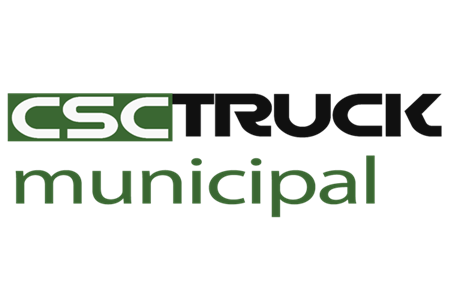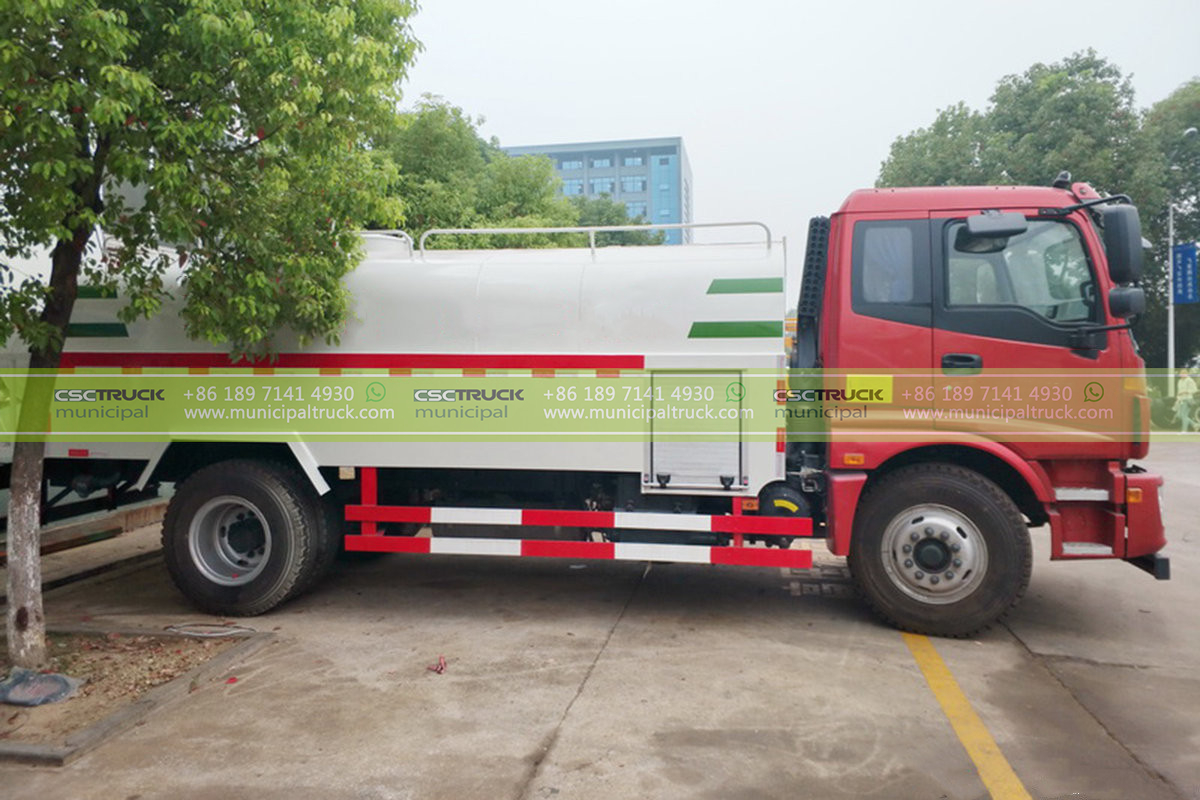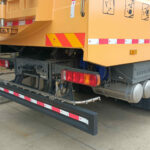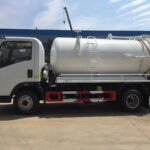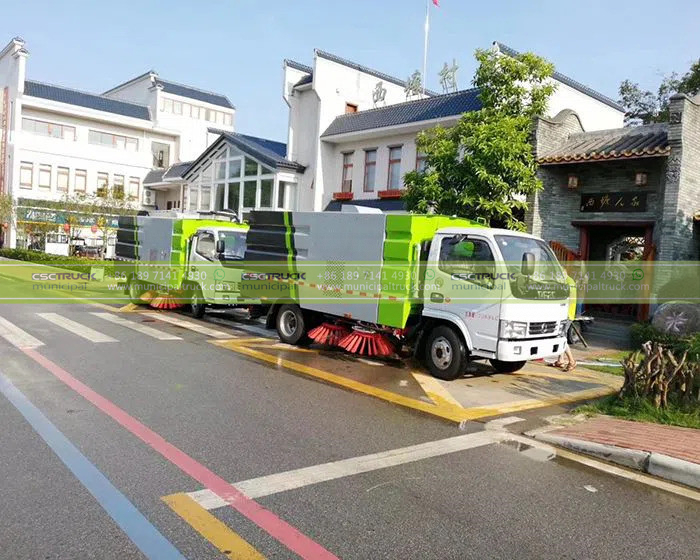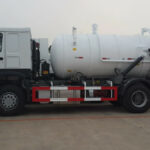In a significant boost to Michigan’s highway maintenance capabilities, a fleet of cutting-edge road sweeper trucks has officially commenced operations across key interstate and state trunkline corridors. This deployment fulfills a major procurement contract awarded by the Michigan Department of Transportation (MDOT) through a partnership between Municipaltruck.com, the globally recognized leader in specialized municipal and highway maintenance equipment, and Great Lakes Infrastructure Partners (GLIP), a prominent Michigan-based heavy civil works firm. The strategic introduction of these technologically sophisticated machines marks a proactive investment in addressing the unique debris challenges faced by Michigan’s extensive highway network, aiming to significantly improve road safety, reduce environmental impacts from roadway pollutants, and enhance the overall driving experience for millions of motorists navigating the Great Lakes State.
Part 1: Purpose-Built Technology for Michigan’s Demanding Highways
Michigan’s highways contend with a punishing combination of seasonal extremes: harsh winter de-icing salts, relentless freeze-thaw cycles creating pothole debris, spring mud tracking, summer construction residue, and accumulated tire wear particles. The newly deployed sweeper trucks represent the latest evolution in mechanical broom and regenerative air technology, specifically engineered by Municipaltruck.com to meet these rigorous demands and deliver superior performance under diverse conditions. Key technological advancements integrated into the fleet include:
- Enhanced Debris Handling & Containment Systems: Featuring reinforced gutter brooms with advanced wear indicators and significantly larger, more robust hopper capacities, these sweepers are designed to efficiently collect and contain heavy loads of winter sand/salt mixtures, coarse aggregate from damaged pavement, and bulky construction waste without frequent interruptions for unloading, maximizing productive sweeping time per shift. The closed-loop containment minimizes fugitive dust and debris scatter even at highway speeds.
- Advanced Particulate Matter Capture & Water Management: Incorporating multi-stage HEPA-grade filtration systems alongside precisely calibrated, high-volume water spray bars ensures near-total capture of fine particulates (PM2.5 and PM10), including hazardous tire wear particles and brake dust, directly at the source. Sophisticated water recirculation and filtration modules drastically reduce freshwater consumption, aligning with Michigan’s water stewardship goals for the Great Lakes basin, while effectively suppressing dust during dry summer operations.
- Intelligent Operational Control & Telematics Integration: Each unit boasts an intuitive, state-of-the-art operator interface providing real-time diagnostics, customizable sweeping programs for varying debris types (e.g., “Winter Salt/Sand,” “Construction Debris,” “Fine Particulate Focus”), and automated adjustments for optimal broom pressure, suction power, and water usage. Integrated GPS and advanced telematics provide MDOT and GLIP fleet managers with comprehensive remote oversight, enabling precise route optimization, fuel efficiency monitoring, predictive maintenance scheduling, and verifiable performance reporting for accountability.
Part 2: Strategic Deployment for Statewide Safety and Environmental Impact
The operational deployment strategy prioritizes maximizing safety benefits and environmental protection across Michigan’s critical highway infrastructure. Focusing initially on high-traffic corridors like I-75, I-94, I-96, and US-131, as well as areas prone to specific issues like construction zones and routes impacted by seasonal agricultural traffic, MDOT and GLIP have implemented a meticulously planned schedule. Operations leverage off-peak and overnight hours to maximize effectiveness while minimizing disruption to commuters and freight mobility. This systematic approach not only ensures visibly cleaner roadways but also directly addresses underlying safety hazards and environmental concerns:
- Proactive Safety Hazard Mitigation: Regular sweeping cycles significantly reduce loose gravel, sand, and debris that pose traction hazards, particularly on curves and entrance/exit ramps, while also minimizing the risk of windshield damage from flying stones kicked up by traffic, thereby enhancing overall highway safety for all users.
- Protecting Water Quality: Intensive sweeping in the spring, specifically targeting accumulated winter sand and de-icing salt residuals before major rain events, is crucial for preventing these pollutants from washing into storm drains and ultimately entering Michigan’s rivers, lakes, and streams, safeguarding vital aquatic ecosystems and drinking water sources.
- Infrastructure Longevity: Removing abrasive materials like sand and salt residues from pavement surfaces reduces wear on road markings and minimizes the infiltration of damaging particles into pavement cracks, contributing to the extended service life of Michigan’s valuable highway assets.
- Improved Air Quality: The advanced filtration capabilities ensure a substantial reduction in the resuspension of harmful fine particulates into the air breathed by nearby communities and drivers, contributing to improved regional air quality metrics.
Part 3: A Collaborative Partnership Driving Michigan Forward
The successful delivery and rapid operational integration of this advanced sweeper fleet underscore the effectiveness of the innovative partnership model between Municipaltruck.com and Great Lakes Infrastructure Partners (GLIP). Municipaltruck.com provided not only the cutting-edge sweeper truck technology but also comprehensive pre-deployment operator training programs focused on maximizing the capabilities of the sophisticated onboard systems, ensuring safe and efficient highway operation, and dedicated technical support specialists embedded during the initial operational phase. GLIP, leveraging its deep roots within Michigan and extensive experience maintaining the state’s complex infrastructure, managed the seamless logistical coordination with MDOT, provided critical local operational expertise regarding Michigan’s unique seasonal challenges, and supplied the highly skilled personnel necessary for round-the-clock fleet operation and maintenance. This powerful synergy between global technological leadership and unparalleled local operational proficiency ensures that the significant investment in these sweeper truck and complementary sprinkler truck assets (used for targeted pre-treatment dust suppression on adjacent unpaved areas) translates directly into measurable improvements in highway safety, environmental stewardship, and the overall quality of Michigan’s critical transportation infrastructure for the long term, demonstrating the tangible benefits of collaborative public-private infrastructure management.
